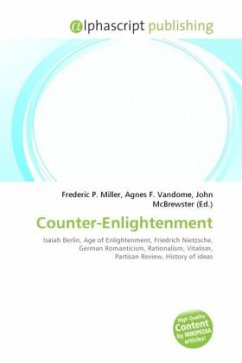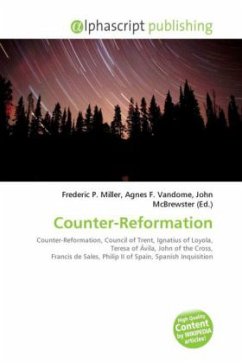"Counter-Enlightenment" is a term used to refer to a movement that arose in the late-eighteenth and early-nineteenth centuries in opposition to the eighteenth century Enlightenment. The term is usually associated with Isaiah Berlin, who is often credited with coining it, perhaps taking up a passing remark of the German philosopher Friedrich Nietzsche, who used the term Gegenaufklärung at the end of the nineteenth century. It has not been widely used since. The first known use of the term 'counter-enlightenment' in English was in 1949. Berlin published widely about the Enlightenment and its enemies and did much to popularise the concept of a Counter-Enlightenment movement that he characterised as relativist, anti-rationalist, vitalist and organic and which he associated most closely with German Romanticism. Some recent scholarship has challenged this view for focusing too narrowly on Germany and stopping abruptly in the early nineteenth century, thereby ignoring the Enlightenment's many subsequent critics, particularly in the twentieth century
Bitte wählen Sie Ihr Anliegen aus.
Rechnungen
Retourenschein anfordern
Bestellstatus
Storno






![Alaskan Boundary Tribunal. The Counter Case of the United States Before the Tribunal Convened at London Under the Provisions of the Treaty Between the United States of America and Great Britain Concluded January 24, 1903. [With Appendix] Alaskan Boundary Tribunal. The Counter Case of the United States Before the Tribunal Convened at London Under the Provisions of the Treaty Between the United States of America and Great Britain Concluded January 24, 1903. [With Appendix]](https://bilder.buecher.de/produkte/65/65781/65781898m.jpg)

